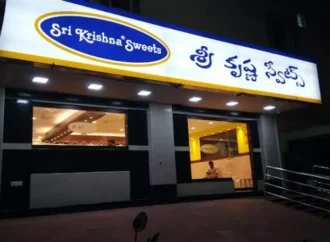Overview
In a bold step to raise food safety standards across India’s rapidly growing online marketplace, the Food Safety and Standards Authority of India (FSSAI) has issued strict new guidelines for e-commerce platforms that sell or deliver food products. During a high-level meeting held at the FSSAI headquarters in New Delhi on Tuesday, the FSSAI CEO instructed all online food businesses to display their FSSAI license or registration number on consumer-facing documents, including invoices, receipts, and cash memos. These documents must also carry details about the Food Safety Connect App — a key channel for consumer complaints and feedback.
Enhancing Transparency and Oversight
To improve backend transparency, platforms must now update the FoSCoS (Food Safety Compliance System) portal with detailed information about all warehouses and storage facilities used in their operations. The CEO also raised the possibility of requiring online listings to display expiry or “use by” dates, reinforcing the push for greater visibility and accountability throughout the supply chain. E-commerce players will also need to maintain high hygiene standards at every point in the food-handling process. To support this, they must upload regular photographs of their warehouses and storage areas on the FoSCoS portal as part of compliance checks.
Mandatory Training for Food Handlers
In a significant move, the FSSAI now requires all food handlers in the e-commerce ecosystem — including warehouse workers and delivery staff — to undergo training through its FoSTaC (Food Safety Training & Certification) programme. Companies must submit implementation plans and timelines to ensure this training is rolled out promptly.
Collaboration is Key to Safer Food
More than 70 representatives from leading e-commerce companies attended the meeting, where the FSSAI stressed that any failure to meet food safety standards would lead to serious action. The regulator also reiterated that every food distribution warehouse must be licensed or registered, with real-time data on facilities, staff, and operations shared on the FoSCoS platform for continuous monitoring. Emphasising the shared nature of food safety responsibilities, the CEO called on all players in the supply chain — manufacturers, aggregators, warehouse operators, and delivery agents — to work together to maintain safety and hygiene.
Consumers Demand Transparency
Consumer group LocalCircles also joined the conversation, urging FSSAI to make “Best Before” date displays mandatory for all packaged foods sold online. They cited survey findings showing that many consumers are unaware of expiry dates when shopping on digital platforms. The group recommended that FSSAI either revise current regulations or withdraw exemptions that allow this lack of transparency — ensuring online food sales match the safety standards of physical retail.
As India’s online food and grocery delivery sector continues to expand, these measures reflect FSSAI’s strong commitment to protecting public health and ensuring that every bite — whether bought from a shop or delivered by an app — is safe to consume.
Source: CNBC TV18
 Food Manifest
Food Manifest 

















